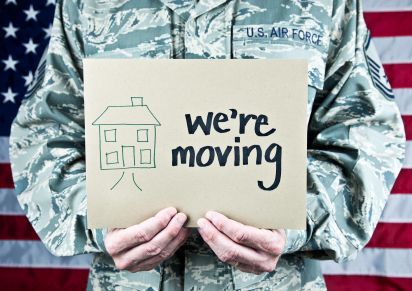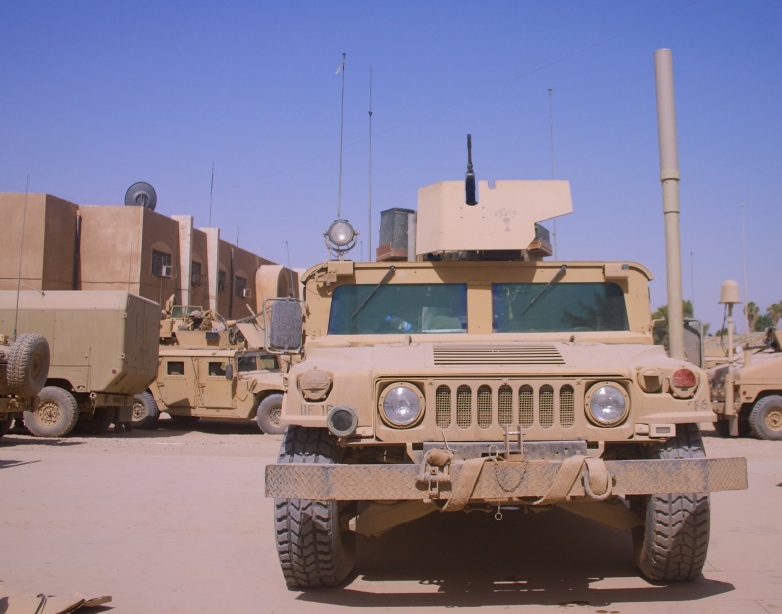“Find something you love to do, and you'll never work a day in your life.”
This is a quote that military spouse and entrepreneur, Alexa Smith, the founder of Stroller Strong Moms, LLC, in Columbus, GA and Savannah, GA, has taken to heart. This mother of three is a proud Army wife to her husband, Tony, and a current resident of Savannah, GA.
As a certified group fitness instructor through the American Council on Exercise, she has utilized her talents and love of fitness and personal training to catapult a career formed out of passion, with the intent to lead others to a more healthy and active lifestyle. In the words of Alexa, “It’s a butt kicking program will help you get strong, lean, energized, and look awesome!”
Growing up, Alexa was a swimmer and soccer player, playing Division I soccer at the University of Connecticut. After college, Alexa played professionally for two years in the first-ever pro league, the Women’s United Soccer Association.
After getting married, Alexa stayed active in the world of soccer through coaching for Columbus State University Women’s Soccer and a number of youth teams in Georgia and Colorado.
Like many busy moms, starting a family and having a career became a balancing act. Her growing family made it more difficult to coach, but, Alexa was determined to explore the prospect of harnessing her expertise to help others, while awarding herself the opportunity to include her children in this new adventure. The Stroller Strong Moms program is geared toward new moms, mainly stay-at-home moms, with a goal of losing baby weight, meeting new people, entertaining their children (it is not uncommon for sing-alongs to occur) and to basically adopt a more active lifestyle. The unavoidable sense of camaraderie is evident; the common thread of pushing each other, pushing themselves, and the sense of community from being in similar situations with children and fitness goals, are the ties that bind these ladies together.
Whether you are exploring the possibility of starting your own business, trying to find a direction in this military wife life, or you just want to know more about Stroller Strong Moms, you will be happy to know, we have picked Alexa’s brain regarding her journey into the world of entrepreneurship.
1. How did you get started with Stroller Strong Moms?
Once I had my first child, I wanted to find a workout I could do with my baby. I loved running with my jogging stroller and weight training so I wanted to do something that combined the two. We lived in Hawaii and I came upon Stroller Strides, a nationally recognized stroller fitness franchise. I started attending and I liked it so much, I became an instructor a few weeks later. I felt like it was what I was meant to do. A few months later, our family moved to Columbus, GA. As soon as we got to Columbus, I looked up Stroller Strides, but there wasn’t one in the Columbus area. At that point, I decided to start my own business. I decided to name it Stroller Strong Moms because I wanted the name to reflect the fact that moms are strong and moms can work hard to reach health and fitness goals. I built a website and created a Facebook page and had a grand opening on September 12, 2011. Less than a year later, I moved to Savannah. I trained and hired four instructors to continue Stroller Strong Moms in Columbus as a started a new class in Savannah in September of 2012. This fall, I will come up on the three year anniversary of SSM Columbus and the two year anniversary of SSM Savannah!
2. Is this your first business?
Yes.
3. How did you finance your business and what was the process like?
I did not finance my business. There were little to no start-up costs because I use public parks for class.
4. How many employees do you have? Full-or Part time? How many Members do you have?
I have nine independent contractors who work for me as instructors (five in Columbus and four in Savannah). I have about 150 members.
5. Describe your customer - current and potential.
My customer is the hard working, goal oriented, and fitness-minded mom who values health and fitness. She understands the importance of setting a good example for her children of the importance of exercise and a healthy lifestyle. She loves a challenge and strives to reach new fitness goals.
6. What are the most crucial things you have done to grow your business?
The most crucial thing I have done to grow my business was to add locations and classes. In Columbus, I added a new location on the other side of town and in Savannah, I added two new locations in neighboring towns. This helped to bring more members into Stroller Strong Moms.
7. What plans do you have for expansion?
I am working on expanding Stroller Strong Moms into other states as instructors and members of Stroller Strong Moms move away from Columbus and Savannah. It breaks my heart when moms move to new places where stroller fitness classes are not offered. Stroller Strong Moms becomes such a part of moms and their daily routine that when it is gone, something is missing. There is so much more to it than a workout; there are lasting friendships that form not just with the moms but with the children. I would love to provide them an opportunity to establish a new community of like-minded moms who are ready to work-out and hangout.
8. What was your biggest challenge you have had with your business?
The biggest challenge I have had with my business is the business side of things. I do not consider myself a business woman, I am just a fitness-minded mom who enjoys watching moms reach a level of fitness they never thought they could reach.
9. What has been your most effective marketing tactic or technique?
My most effective marketing tactic was to advertise on the local websites that provide resources for moms.
10. What three pieces of advice would you offer entrepreneurs starting out?
A piece of advice I would offer to entrepreneurs would be to make sure you start a business doing something that you are passionate about, but at the same time something that challenges you. My second piece of advice would be to be patient. It took me about a year in both locations to reach my goal of having a very successful business. My third piece of advice would be to have a sense of humor about it, because you will make silly mistakes and there will be lots of hiccups, but as long as you are having fun, everything is going to be alright.
In addition to all the obvious health and wellness benefits, it is extremely important to highlight the enormous community involvement and outreach, in which Alexa and the entire organization participate. From fundraiser races to local charity collection donations, the goals of the group far surpass simply the health aspect.
The unique talents surrounding us, in this military community, are endless. While it seems we are limited to our current locations, situations and set of circumstances, we all have the power to turn our dreams, passions and ambitions in to a career and source of income. The road to success will, more often than not, seem like a bumpy ride. One of the most helpful things to do is find a mentor. Find a spouse who was once in your position . . . just a person with a dream. Pick their brain. Ask questions. Keep learning. And then, go for it.
And, once you do, let us know, so we can tell your story.
To learn more about Alexa Smith and Stroller Strong Moms, visit:
www.strollerstrongmoms.com and “Like” the Facebook page!


 Each year, some 300,000 service members and their families PCS from one duty station to another. We’ve all done it, some more than others. And after a few times of prepping all your stuff to be packed, dutifully watching the movers box it up and load the truck, and then watching that truck drive away with your precious belongings, you think you’ve got it down. You think you’ve seen it all.
Each year, some 300,000 service members and their families PCS from one duty station to another. We’ve all done it, some more than others. And after a few times of prepping all your stuff to be packed, dutifully watching the movers box it up and load the truck, and then watching that truck drive away with your precious belongings, you think you’ve got it down. You think you’ve seen it all.






